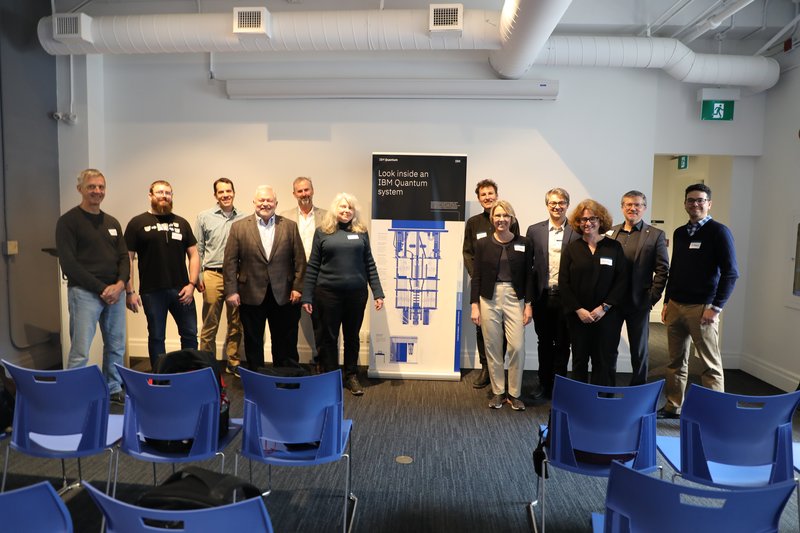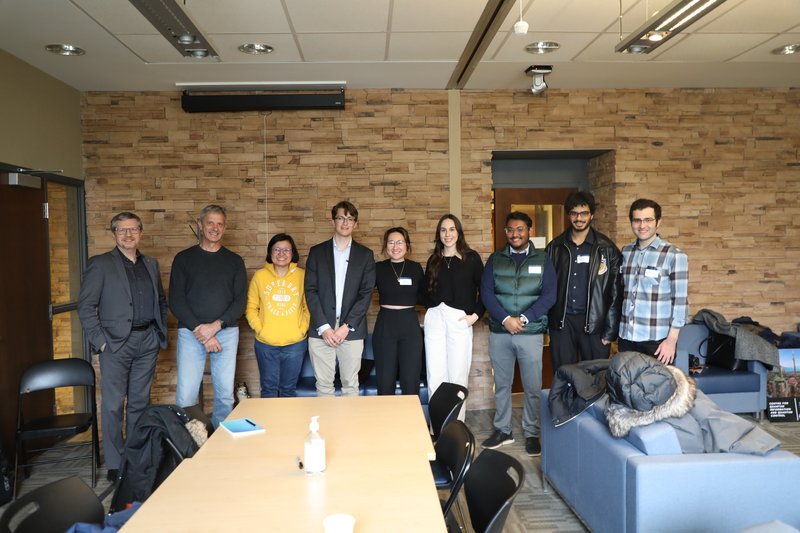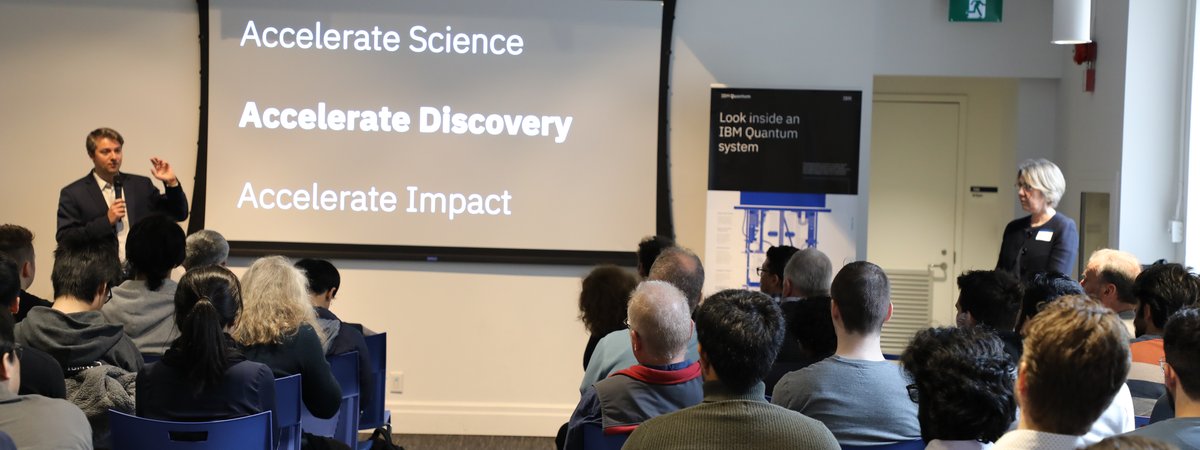Quantum computing – the endeavour to use quantum principles to create new computing approaches – is a compelling yet challenging paradigm. The potential capabilities of quantum computers to solve real-life problems have attracted significant research efforts. University of Toronto's researchers are contributing at the forefront of fundamental quantum computing research by developing quantum algorithms, software, and hardware architectures. However, to amplify these research efforts, researchers would require access to cutting-edge quantum hardware.
Identifying the growing need of U of T researchers to gain access to quantum computational resources, IBM Quantum and the U of T's Centre for Quantum Information and Quantum Control (CQIQC), co-organized the U of T-IBM Quantum Computing Conference on quantum computing resources. The event was held on April 18th, 2023 at the University of Toronto's ONRamp space, an inviting space for innovation and entrepreneurship. Over 80 people attended this conference, including faculty members, students, and industry leaders.
CQIQC, a U of T research centre, is missioned to make the University a hub in quantum science and technology. By offering seminars, workshops and conferences, the Centre equips its members with research, collaboration and networking opportunities. CQIQC’s Quantum Strategic Initiative Lead, Anna Dyring, spearheaded this conference alongside IBM Quantum, an industry leader in quantum computing technology, PINQ2, a non-profit computational organization initiated by the University of Sherbrooke and the Quebec Ministry of Economy and Innovation, and SOSCIP, Ontario-based R&D advanced-computing consortium.
The conference brought quantum computing experts from the industry to U of T. In the morning, representatives from IBM, PINQ2, and SOSCIP delivered research talks and discussed how to leverage their resources toward research projects. In the afternoon, industry representatives met with U of T researchers in small groups to explore joint research opportunities.

Opening up the conference was Blake Johnston, Distinguished Engineer and Quantum Engine Lead for IBM. His research presentation on Extending the Performance of Quantum Computers showcased IBM's recent work on error suppression and mitigation. Onwards, his colleague Julien Chosson presented the IBM Discovery Accelerator that will be opened in Bromont, Quebec. This technology hub will combine quantum computing, artificial intelligence, and high-performance computing platforms to accelerate research in energy, life sciences, and sustainability. Representatives from PINQ2, Eric Capelle and Christophe Pere, discussed how their organization could facilitate digital innovation for companies concerning quantum computing. Ending the morning session, Tibor Turi of SOSCIP described their work on connecting researchers from academia to industry partners and providing computing resources with software and expert support. Through these presentations, attendees learned about the challenges and advancements in quantum computing, and the resources available to them from different computing hubs.
More of an understanding about how the industry interacts with academia, which is something you are not exposed to as an undergrad. Anton Sugolov, a third-year mathematics and statistics undergraduate, on the conference
In the second half of the day, researchers participated in breakout sessions with representatives from IBM, PINQ2, and SOSCIP— a unique opportunity for students. Luis Martinez, a postdoctoral fellow under the supervision of Chemistry Professor Artur Izmaylov, discussed his research project with these representatives. His work is devoted to developing quantum algorithms towards applications in quantum chemistry. After asking the representatives about effective quantum platforms, he is "now aware of what kind of devices are out there."
Professor Arno Jacobsen's research group from the Department of Electrical and Computer Engineering also attended these sessions. They presented their ongoing and upcoming projects on developing quantum algorithms and quantum computing approaches for machine learning, differential privacy, and chemical property predictions to industry representatives.

Viki Kumar Prasad, a postdoctoral fellow working with Professor Jacobsen, was grateful for this experience as he connected with several industry leaders. "Before this [conference], I have not met anybody from IBM on a one-on-one basis. This gave us a good opportunity to present the research that we do in the group at U of T and show that we are at the forefront of this research." His groupmate, Anton Sugolov, a third-year mathematics and statistics undergraduate, agreed with Prasad's comment. He enjoyed the conference as he got "more of an understanding about how the industry interacts with academia, which is something you are not exposed to as an undergrad." In the future, Sugolov hopes to use his research interests in applied math for modelling, machine learning, and computing to work in the quantum field.
Dvira Segal, CQIQC's director and a professor at the Department of Chemistry, agrees: "This was a new type of conference, allowing ample time for researchers to talk with industry representatives. We are grateful to IBM, PINQ2, and SOSCIP for showcasing their capabilities at U of T." Anna Dyring, who led the effort from U of T concludes: "It was encouraging to witness students' enthusiasm to learn about quantum resources available to them to experiment with. CQIQC is committed to bringing quantum innovation leaders to U of T".

